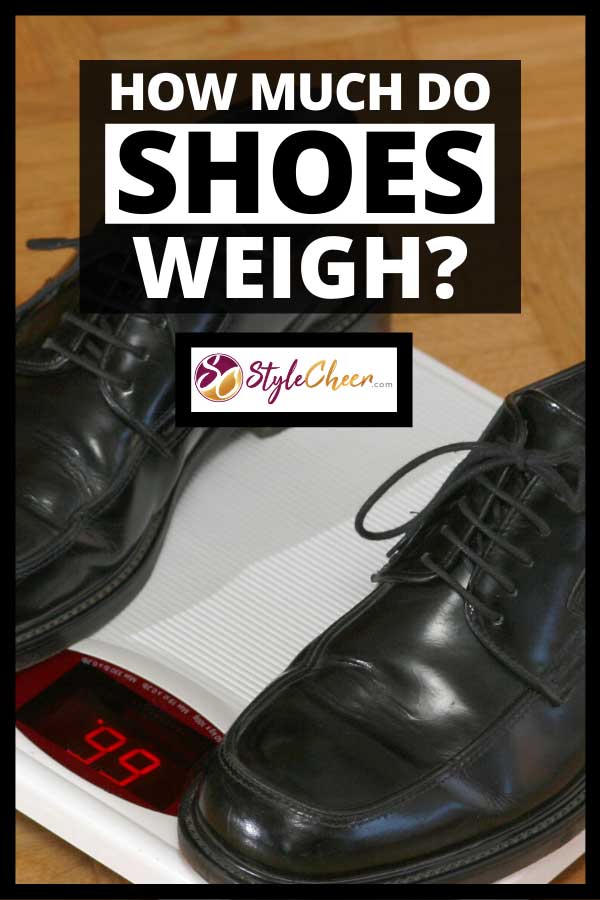
This article may include affiliate links and elements that were carefully created by our team using advanced ai to help you envision the best style advice.
Here are the average weights of various types of shoes:
- Hiking boots weight roughly 3.75 pounds or roughly 1.7 kilograms
- Trainers, or running shoes, weigh approximately 1.75 pounds or roughly 0.8 kilograms
- Sandals weigh around 0.77 pounds or 0.35 kilograms
- A pair of vans or casual shoes weigh approximately 1.65 pounds or 0.75 kilograms
- Steel-toed boots weigh approximately 4.5 to 5 pounds or roughly 2 to 2.3 kilograms
Each of these shoes is meant for different activities in life, and their weight can significantly impact your experience in whatever activity you’re engaged in. While it’s nice to know how much each type of shoe weighs, the overview doesn’t tell you why it matters. Keep reading to learn more about how the weight of each type of shoe could affect you and some common questions you may have about the weight of your shoe.
The Weight of “Everyday” Shoes

The weight of your everyday shoe, such as a pair of Van’s Low-Top Sneakers will weigh roughly a pound and a half or 0.68 kilograms. Those who are interesting in buying high-top Vans can expect to find the shoe to weigh closer to the pound and a half mark whereas low-top Vas will average closer to one pound.
These are the shoes you’re going to be gracing your feet with for up to several years. Those who care about everyday comfort need to do additional research. Get lightweight, comfortable shoes when deciding casual shoe-wear. These are the shoes that get the most day-to-day use and will have the most significant impact on feet.
Don’t walk around all day with heavy or clunky boots; no favors will be made in terms of flexibility and ease of use. It’s not worth it.
Lightweight shoes, such as Van’s pair listed about are ideal for keeping your feet comfy.
Click here to see these on Amazon.
Train With the Right Weight
Trainers, or sneakers, are used for performance running for a reason – they work better.

This is because trainers, such as Reebok Men’s Crossfit Nano 8.0, are designed to be lighter to reduce the load your feet are carrying.
This pair of shoes weighs 0.625 pounds or approximately 0.3 kilograms.
The Run S.M.A.R.T Project spoke with an expert in the field and found that 100 grams of weight added to running shoes will increase the aerobic demand of running by 1 percent.
That may not sound like a lot, but it will affect your performance. Performance runners and competitors will drastically feel the difference. Decreasing the weight of trainers or sneakers will help athletes get an extra boost when it matters most.
On the contrary, some trainers are designed to be a heavier shoe. These are great if you’re working on training the endurance of your legs and feet. By carrying more weight, runners will be able to move less weight much quicker after an extended period.
Those who care about performance running, or those who want to be the best they can be at running, will need to make sure that they’re picking the appropriate shoe weight for whatever circumstances are at hand.
Click here to see these on Amazon.
Does Shoe Weight Make Hiking Harder?
Yes, the weight of your shoe matters when hiking. This is much more prevalent in hiking because of the surfaces and conditions you’ll be walking in.
When it comes to running for performance or casual wear, your feet will be on relatively even ground for the most part. When hiking, enthusiasts will face many different obstacles. This includes climbing all over various types of structures and surfaces that can put an increased burden on feet. By having heavy-weighted hiking boots or shoes, hikers create extra difficulties for themselves that can ruin the entire experience.
The United States Army proved this in 1983. The endurance of soldiers is incredibly important, so they took a close look at how to make soldiers more efficient while in the field.
They found that a small increase in the weight of your shoes will add up to a significantly higher expenditure of energy while moving. That means the weight of your shoes will add up, and it will do it quickly.

Shoes such as Merrell’s Moab 2-Vent Hiking Shoe are ideal for those wanting to hike in rugged terrains while putting as little strain on your feet as possible.
This shoe pair weighs approximately 2 pounds or 0.9 kilograms. This is a little heavier than a traditional running or casual shoe, but it needs it. The extra weight will provide durability and protection for your feet as you battle the elements of the outdoors.
Gals who love boots don’t have to fret. Boots are fashionable year-round. There are many outlets located across the world that can provide quality leather boots that you must check out.
However, carefully consider the weight on those boots and aim for a more casual weight rather than a weight intended for outdoor use.
Click here to see this on Amazon.
Sandals are Indeed Shoes
Sandals, at their core, at meant to be trendy, fashionable footwear that is appropriate in casual and outdoor scenes. You want these to be comfortable and feel like feathers on your feet.
The whole point of sandals is for comfort, so make sure you’re going looking for sandals that won’t tie you down.

On average, sandals will weigh around 0.35 pounds. This pair of Docker’s outdoor sandals comes in with an ideal weight of approximately 0.5 pounds or 0.2 kilograms. While these are a bit heavier than average, you’ll notice they offer a lot of support and structure for a sandal.
If you’re looking for extra comfort rather than flexibility in the places you can use them, a pair of slides or flats may be more appropriate.
Click here to see these on Amazon.
In the End, Does it Matter?
If you haven’t caught on, shoe weight matters.
No matter what you need your shoes for, the weight of them can and will significantly affect.
This is especially true from those involved in competition or races. The Journal of Ergonomics continued research into shoe weight has shown that sprinters will also suffer performance times when using heavier shoes.
Do your due diligence and research on what shoe weight is best for you.
How Much do Clothes and Shoes Add to Your Weight?
It’s become such an essential question to the masses that the International Journal of Obesity conducted a study to find out the average weight medical professionals should be dropping from a scale.
The answer proves to be a relatively happy one. The study found that men can subtract roughly 2.5 pounds or 1.13 kilograms from the scale. Women can safely subtract 2 pounds or 0.9 kilograms from the scale to account for clothing. While women’s clothing weighs less than a man’s, we can all safely agree that we’ll take whatever we can get when it comes to our weight.
How Much Does it Cost to Ship a Box of Shoes?
You’ll have two options when it comes to shipping a box of shoes:
- Priority Mail Shoe Boxes
- Custom Packaging
USPS Priority Mail Shoe Boxes
Looking for the best value? You must try out USPS’ Priority Mail Shoe Boxes. They’re free! They’re able to be ordered online without costing a dime.
However, that doesn’t mean they’re free to ship. There are several boxes available from you to choose from and are distinguished by the weight of the shoe you’re shipping.
The smallest boxes will cost approximately $5.80, while the largest of the boxes will cost approximately $11 to ship, depending on the destinations.
These are, by far, the best option for those looking for affordable shipping.
Custom Packaging
Custom packaging is ideal for those who are developing a brand for a business. They’ll want a custom package to reinforce the brand to consumers.
If this is the case, the weight of the shoe must be taken at the post office for a quote on shipping charges.
The price range may vary from as low as $8 to upwards of $20 depending on the overall weight of the package and how far it’ll be getting shipped.
The more the shoes weigh, the more expensive the shipping will be.
All in all, the weight of your shoes affects many things, from stability to how many calories you burn.

![Woman washing a shirt with her hand, Remove Tire Marks From Clothes Like a Pro [How to Guide] - 1600x900](https://stylecheer.com/wp-content/uploads/2023/08/shutterstock_305739509-300x169.jpg)

